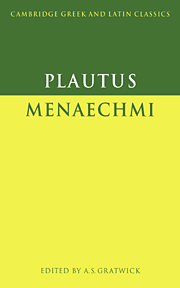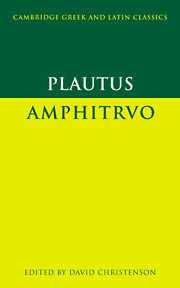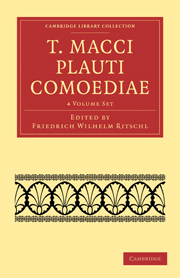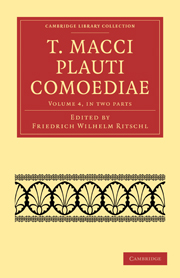Plautus: Menaechmi
Menaechmi is one of Plautus' liveliest and most entertaining comedies, the main inspiration for Shakespeare's The Comedy of Errors. Dr Gratwick's edition brings new light to bear on the interpretation of the play and on Plautus' place in the development of European comedy. Central to his treatment is the fact that Plautus was a dramatist who wrote to be heard rather than to be read. The various metres which he subtly and flexibly exploited for musical and dramatic effect are here explained in a way that challenges many received views but also offers the student practical assistance in grappling with the technical problems involved both on stage and in performance. The text has been newly constituted on the basis of a complete reappraisal of the manuscript tradition in the light of scholarship since the Renaissance.
- No competing text and commentary
- The Menaechmi, a Roman comedy with a story of long-lost twin brothers and confused identities, is a good play for students to read
- Dr Gratwick is distinguished for his treatment of the very complicated metres used by the Roman comic writer Plautus and this edition embodies his principles
Reviews & endorsements
"The commentary is lengthy and detailed. Teachers and graduate students will want to consult this edition...." Religious Studies Review
"The commentary is lengthy and detailed. Teachers and graduate students will want to consult this edition...." Religious Studies Review
"Professional classicists will be impressed not just by the quantity of information presented on its pages, but by the quality and originality of the author's scholarship, the amount of painstaking labor that he has invested in every sophisticated analysis, and the graceful precision of his writing." Bryn Mawr Classical Review
Product details
June 1993Paperback
9780521349703
288 pages
203 × 127 × 16 mm
0.3kg
Available
Table of Contents
- Introduction:
- 1. The genre
- 2. This play
- 3. The MSS and the transmission
- 4. Scanning and reading Plautus' verse
- T. Macci Plavti Menaechnu
- Commentary
- Appendices.






